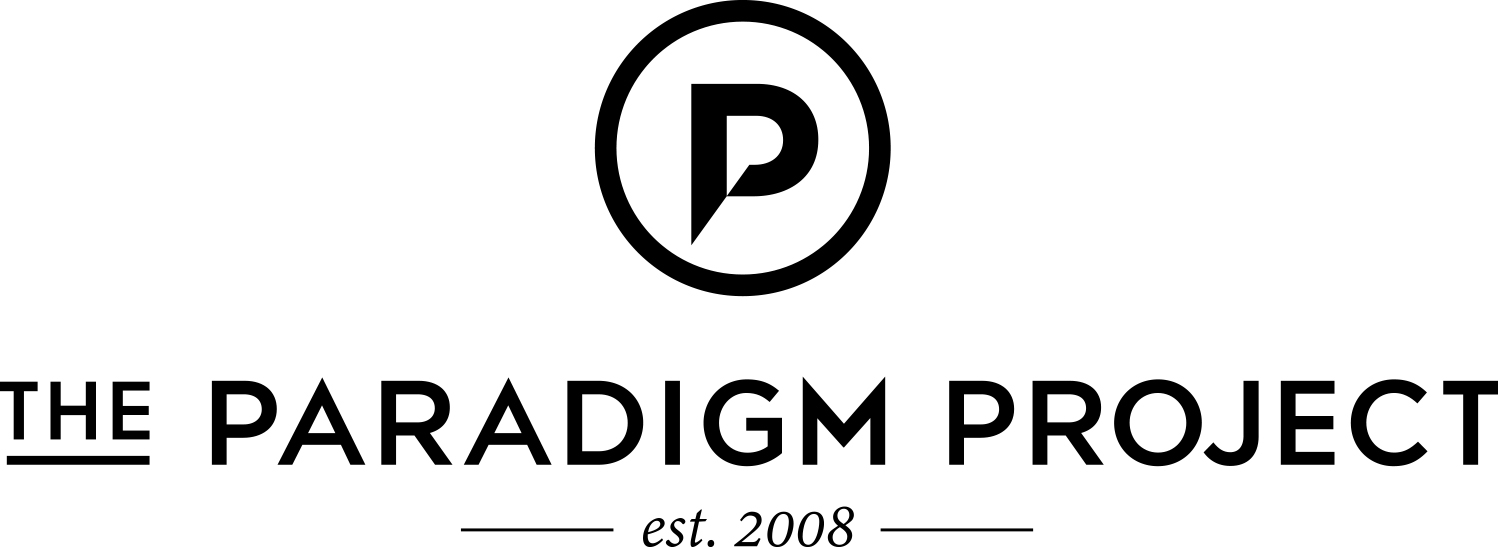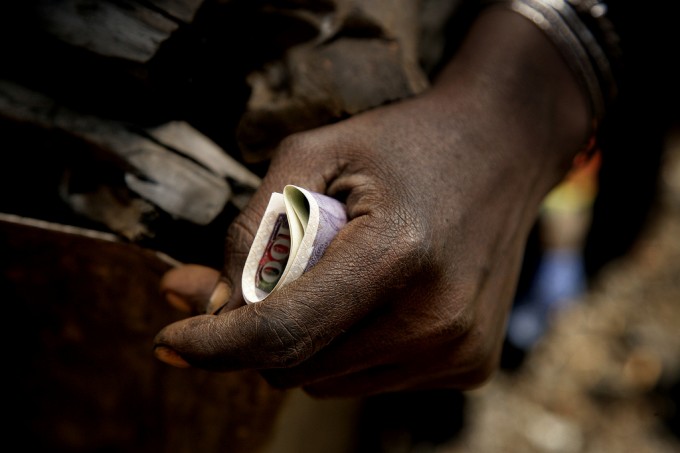Not too long ago I was in a Land Cruiser rocketing across the salt-strewn flats of the Chalbi desert in Northern Kenya. I was making the 6 hour trek from Kalacha, a parched land about 1000 kilometers from Nairobi, to Marsabit, a peri-urban area of about 250,000 people that lays claim to some of the last remaining forest cover in the region.
The Chalbi is flat, dry and very hot. There are no roads, per se, but rather well worn tracks scattering across the plain in front of us in vein-like patterns. The driver somehow knows his way. Every now and then we pass an old truck cemented into the salty desert sand from an unsuccessful crossing attempt during the rainy season, or the carcass of a camel either too old or too frail to make it through the vast expanse. Middle of nowhere would be a drastic understatement.
As we bounce along, I find myself wondering how in the heck I got here. Five years ago I was sitting in board rooms helping Fortune 500 clients develop new products. Today, I'm in the back of a Land Cruiser baking in a salty marinade. In all fairness, it was those board rooms that put me here. Sitting in a steady flow of meetings, looking around at the cadre of expensive executives seated around the table, wondering how much money was being spent on bringing us all together for such seemingly trivial pursuits as selecting the color of a new soda can or wrestling over the name of a new sneaker. It's mind boggling the amount of resources that are expended on such things every day. And having spent some time in the developing world working with some fantastic non-profits, my mind began to wander more in those meetings as I tried to un-boggle those facts.
The first thought that comes to mind when faced with this reality (for me, at least) is "what if we could take the $40,000 being spent on this meeting here today, convene by teleconference and send the money to some people who need it a whole lot more than we do?" Not a bad thought. $40,000 could probably feed a lot of people. But then how long can you do that before the group starts to crave catered lunch and delivered lattes and reverts to the conference room approach? Quaint, but unsustainable and ultimately unscalable. "OK. What if we link the profits made from that product to a charity? Jack the price up a bit and we have a little extra frosting on the cake to share with the poor right?" Right. And many companies do this. I'm glad they do. Corporate charity serves a lot of needs around the world. But it's still just a drop in the bucket on a global scale. "Thank you for purchasing those $165 trainers. We've now sent $.47 to our favorite charity."
So let's cut to the chase: you want to really create sustainable, scalable change in the world? Think a bit deeper. What motivates that company to spend $40,000 dollars to bring a bunch of highly paid executives into a room to figure out how to get people to buy more soda? Money. These people aren't stupid. They wouldn't be spending $40,000 if they didn't believe they could turn it into $40 billion. Not all in one transaction, but over a series of millions of transactions. $0.15 cents in profit per sale, purchased 3 times a week by 30 million people puts $700 million in the bank. And in that simple thought there is great power.
You want to change the world? You want to create jobs? End poverty? A profit motive is a powerful lever to do so. Profit from the poor. Sounds absurd, doesn't it? But it is the most effective and efficient way to mobilize capital to solve many problems in our world. Give people a means to make some money and they will move to action.
Let's put some real context to this. In 2009, the US gave away $300 billion to charity. Not bad. In that same year, the amount of investment money under management in private equity alone--I'm not even talking about the stock market or banks or mutual funds where 98% of US wealth resides--was $2.5 trillion. Almost 10 times as much. So imagine drawing even a small portion of that money into social enterprise investment in the developing world. Businesses that create social outcomes AND a profit for investors. True, that's like not going to happen through a soda company, but the principle of drawing capital toward opportunity (profit) still applies. Investment funds will flow to places and projects that can create a return on that investment. Aligning business outcomes with social outcomes to deliver economic, social and environmental outcomes creates win-win scenarios for investors and developing world communities alike.
We created The Paradigm Project to do just that.
When I met my partners in 2008, I knew I wanted to create something that would change the way people looked at economic development in Africa. Something that helped the poor, but made money while it did so and thus would not be reliant on donor capital. I had no idea at the time that it would be a carbon offset business model selling efficient stoves and water filtration products in some of the poorest parts of the world. But when we looked at the real needs, that's where we landed. What a wild ride it has been, and it is only just beginning.
We launched in Kenya 2008 with a dream to leverage carbon offset revenue to finance early stage project development. Our goal was to establish an efficient stove supply chain that included local manufacturing and local management. At the time we thought we'd be lucky to sell 10,000 stoves in our first year of operation. Today we're on track to deliver over 40,000 annually and our biggest problem is figuring out how to keep up with demand. We charge about $25 for an efficient stove in Kenya. That includes some margin, but not much. We make up the difference (and provide our investors a profit) by monitoring the use of that stove and selling the carbon offsets that are generated by the reduction in cooking emissions. In doing so, we save families money, time, improve their health and decrease pressure on the local environment all while making a long-term profit. Could we be giving stoves away? Maybe. But that wouldn't last. Even if we raised enough donor money to give everyone in Kenya a stove, where would they go to get a replacement when it wore out? Or repairs when it broke? Or training? The point is that by selling the stoves, we can employ sales people and repair people and trainers and provide warranty service and incentivize local partners to stay in the market over the long run because it provides income for them and their families. We create an industry serving a real need. And we offer a product and service that is truly valued (otherwise no one would pay for it).
The consumer feedback loop is very efficient. If I walk up to you and hand you something for free, you might thank me and take it home. If it doesn't work, you may or may not seek to repair it (it was free, after all, so no skin off your back). You almost certainly wouldn't come back to me and complain about it. Why would you? It was a gift. On the other hand, if you use your hard-earned money to pay for something, you expect it to deliver. In fact you demand that it delivers and you go raise hell if it doesn't. And in that difference is the key to successful economic development. Your feedback helps me make a better product. My cost to fix your problems motivates me to get it right next time. Everything about the exchange reinforces positive outcomes and better solutions. Tough to create that with donation models because they function from a gift mentality that inherently discourages negative feedback.
So where do we go from here? I only partially know. With 3 billion of us around the globe cooking every meal over open fires, there is quite literally more problem to tackle than we will ever be able to address. But we're committed to making a significant dent in that number. And we think we can best do so by drawing investment capital toward impact investments that deliver real social outcomes and competitive returns all at the same time. Even if we only get a small slice of that pie, it's a Texas-sized pie that could have huge impact on global poverty.
Wish us luck. Better yet, jump into the pool with us. Or the hot, dry Chalbi desert, in this case.
--Neil Bellefeuille, CEO, The Paradigm Project




